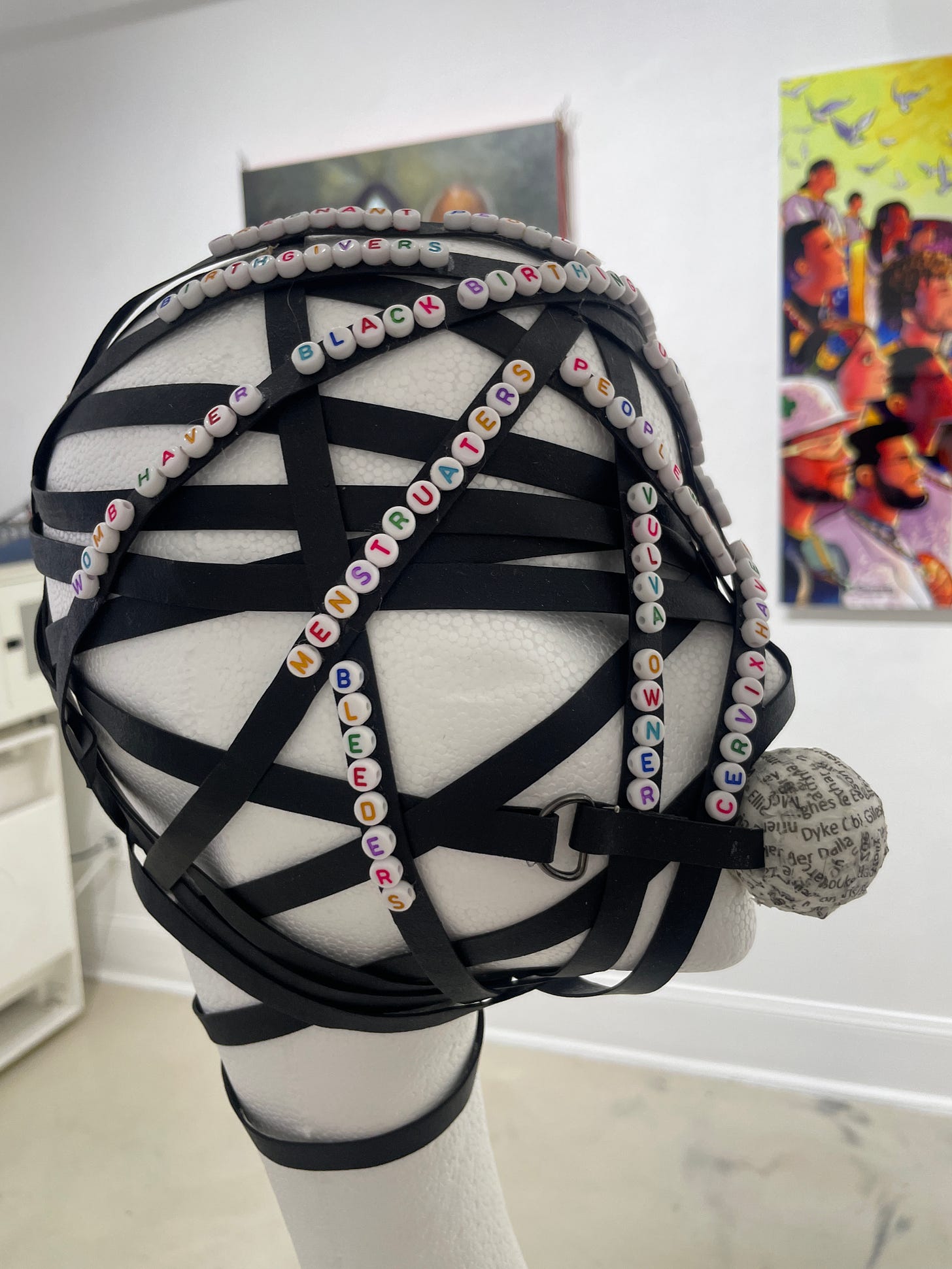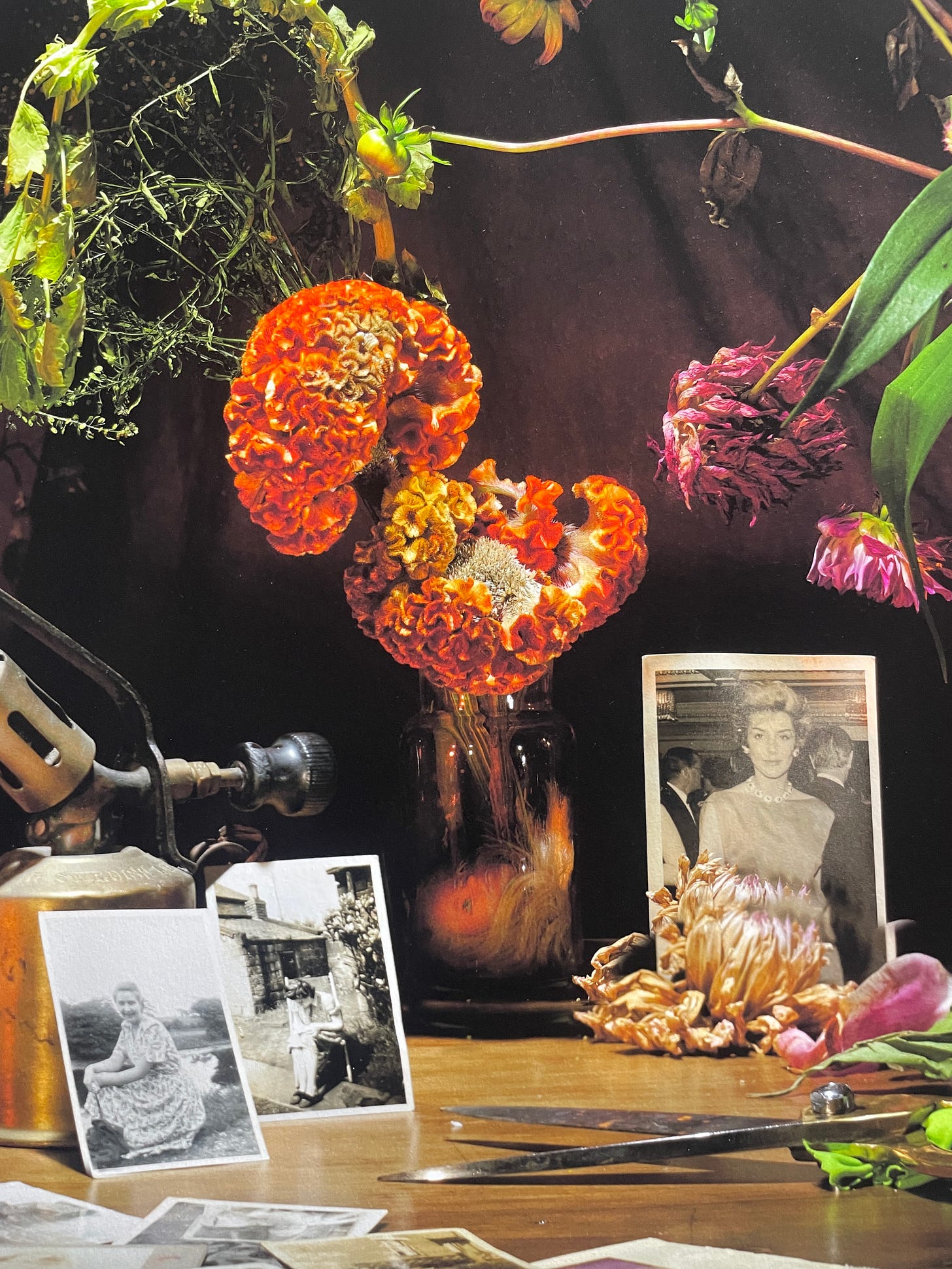Bearing witness and protecting freedom: two bright spots in our otherwise bleak cultural landscape
I saw two shows last week in New York that showed me brave artists are still out there
October 7
The Actor’s Temple 339 W.47th St NY
When it comes to our current cultural crisis, there are many ways in which my outlook is rather bleak. Last September, I read Václav Havel’s Power of the Powerless and wrote a Substack entitled I regret to inform you we are already living under a totalitarian regime. While many outcast intellectuals warn of an impending loss of freedoms, on so many levels we have already lost.
Nowhere is this more true than in the culture sector. Where I live, in the United Kingdom, I hear reports both from people I know personally and from well established dissidents whose work I follow, the makers and shapers of culture have been captured by CRT-woke ideology. The gatekeepers who make or break projects are in thrall to the CRT commissars and their cadres of resentful zealots chomping at the bit for a chance to take down another artist’s work. In the US, the birthplace of the Broadway musical and the Hollywood blockbuster, the situation is largely the same.
I am thrilled to report that my trip to New York last week showed me that there are signs of life for non-ideological culture. All is not, in fact, lost.
Yesterday a very important play called October 7 had its premiere at The Actor’s Temple in Manhattan’s Theatre District. I saw it in previews last week after meeting Phelim McAleer, a journalist and film maker originally from Northern Ireland who wrote the play’s script. McAleer and his wife, Ann McElhinney, travelled to Israel after the Hamas pogrom and interviewed survivors. From those accounts, which he quoted verbatim without adding any editorialising, McAleer crafted a script that is both harrowing and ultimately life-affirming.
The play opened on Monday at an Off-Broadway theatre that is also a functioning temple. The Actor’s Temple’s website proclaims its egalitarian, multi-faith, progressive ethos, yet because it’s hosting this play, it now requires police protection. Such is the level of tension surrounding anything to do with Israel. McAleer told me that the project had two directors drop out before Geoffrey Cantor, its current director, had the courage to step in. In New York City — a place that has been shaped by the cultural contribution of Jews for over a hundred years — a pro-Jewish play requires security. As I took my seat in the audience with the show about to start, McAleer came up to me and said “if any protestors interrupt the play, film them.”
Never in my wildest dreams did I think that New York City, of all places, would exhibit a level of hostility to Jewish expression that is is redolent of 1930’s Vienna.
October 7 is set at the Nova festival and at a kibbutz, with 14 actors playing a variety of roles on a sparse stage with no distracting sets — just effective use of lighting and sound. The play opens with booming house music as young, exuberant Israelis party in the desert, so immersed in the moment that the sudden onset of the attack seems totally impossible, even as the violence erupts around them. Characters run on and off the stage, as the play moves to a kibbutz where residents were just waking up after a religious holiday that had families gathered together in celebration of life.
As I watched the action unfold, I thought that the actors perhaps were just regular people, not professionals, so convincing were they in their ordinariness. Because at its heart, the story of October 7 — like the story of other horrifying terrorist attacks, most notably September 11 — is the story of ordinary people who are suddenly called upon to perform the greatest acts of heroism and bravery, in aid of people who are often total strangers. The dark, demonic, heart of the terrorism strategy is to demoralise its targets by attacking the most powerless and cherished among them — the children, the old people, the mothers — but often it can have the opposite effect. So it was for Israelis on that terrible day in October.
One kibbutz resident, a grandmother called Biliya, who began the weekend cooking a special meal for her children and small grandchildren, is forced to climb out a window after a terrorist enters her home. Her daughters-in-law and grandchildren go first, with her unarmed son helping them but staying behind. When she tries to get out, though, her leg gets stuck, and the terrorist sees her, aims his rifle, and shoots. The gun jammed. She says despite the terror of her circumstances, she felt no fear.
“I know he's dangerous. But I wasn't scared. How can I explain this? I know he only knows how to kill. I cannot really relate to him as a human. It's a something, it's not someone. A thing that came to kill. I know he’s dangerous, very dangerous. But the fear was not there. He doesn’t deserve my fear.”
Those words will stay with me for a long time. Biliya in many ways could have been the ultimate victim: an older woman, trapped and stalked by vicious killers, alone but for her equally defenceless young family. Instead, she channels an almost mythological level of strength — a testament to the profound capabilities of the human spirit.
Passion For Freedom art exhibition
Seven House Gallery 35 Meadow St Brooklyn
Another bright spot in the bleak ideological hellscape is an art exhibition currently on in Williamsburg, Brooklyn. Williamsburg, of course, is ground zero for an edgy hipsterdom that poses as iconoclastic, but in today’s degraded culture is more frequently a reinforcing of political orthodoxies.
So Passion For Freedom, a project that began in 2009 to showcase art from places and people who suffered censorship and condemnation, is not just a breath of fresh air. It is in and of itself an act of defiance to the woke cultural commissars.
Featuring artists from across the world, this show is small but mighty. Several of its artists have received death threats stemming from their work. Tasleem Mulhall is a British-Yemeni artist who contributed a sculpture to the show, critiquing the financial backing of the war in Gaza by assembling real Israeli and Hamas rockets adorned with political slogans, flags and pieces of torn cloth. At a previous Passion For Freedom art show in London in 2015, her sculpture “Stoned” gained so much notoriety that she received credible death threats, leading her to install a panic room in her home in the UK.
Another female artist who is featured on the Passion For Freedom website said something strikingly similar to Biliya in the October 7 play. In an interview posted to the Passion For Freedom website, Iraqi-Kurd Tara Abdullah described being beaten by her father after he found out that she had created a massive art installation in their hometown, of women’s clothes strung together on a five kilometre washing line. The work was called the Feminine Project, for it she had been given items from 99,000 women, and assembled them in secret. The washing line provoked an explosion of anger among the towns’ residents, and also her father. “The first thing that happened was that I was beaten by my father,” she says in this interview. But like Biliya in the kibbutz on Oct. 7, the fear of physical violence, somehow, did not penetrate her soul.
“After hearing stories of all these women, after facing numerous threats from strangers and after being physically assaulted by my own father, I felt that any fear I may have had had dissipated long ago. I don’t know how to explain this. I no longer harbour any fear towards them or towards my endeavours aimed at advocating for women’s freedom. There is simply no fear within me in this regard.”
I suppose this is the necessary antidote when ideological conformity leads to violence and atrocity — and this explains why so few people are able to resist. Who among us would have that level of courage? I certainly cannot say that I would. But I’m glad there are people out there who do, and that they have allies like the producers of October 7 and Passion For Freedom, who ignore the hatred to tell their stories.










Thank you so much! I’m the director of 10/7!
Thank you for highlighting Passion for Freedom Art Festival in New York! We couldn't have done it without amazing artists from around the world and Friends donating their skills and time. Love, joy, friendship will always win! Agnieszka, PFF Curator